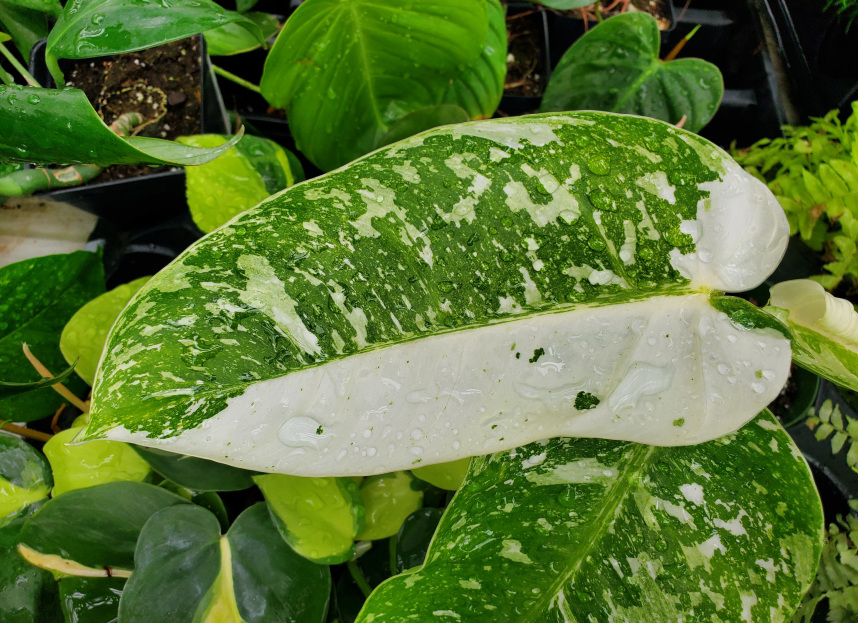
Philodendron 'Jose Buono' is an impressive, tropical houseplant known for its large, variegated leaves splashed with creamy white and green patterns. Its bold foliage makes it a stunning centerpiece for any indoor plant collection. With the right care, this slow-growing aroid can thrive and become even more vibrant over time. Let’s dive into the care essentials for keeping your Philodendron 'Jose Buono' healthy and beautiful.
Philodendron 'Jose Buono' thrives in bright, indirect light. It’s best to place it near an east or west-facing window where it can receive plenty of filtered sunlight without being exposed to harsh, direct rays. Too much direct sun can scorch the leaves, causing the variegation to fade or brown. On the other hand, low light can slow growth and reduce variegation. If you notice the plant becoming leggy or the leaves losing their contrast, try moving it to a brighter spot.
This philodendron enjoys evenly moist soil but hates being overwatered. Water the plant when the top 2 inches of soil feels dry to the touch. It’s important to water thoroughly until water drains from the bottom of the pot, but don’t let it sit in excess water. During the growing season (spring and summer), you may need to water more frequently. In winter, when growth slows, reduce watering to prevent root rot.
A well-draining, airy soil mix is crucial for Philodendron 'Jose Buono.' A blend of potting soil, perlite, orchid bark, and a bit of peat moss works wonderfully to provide the aeration and drainage the roots need. Make sure your pot has drainage holes to avoid soggy soil, which can lead to root rot.
As a tropical plant, Philodendron 'Jose Buono' prefers warm, humid environments. Aim to keep temperatures between 65-85°F (18-29°C). It’s sensitive to cold drafts, so avoid placing it near windows or doors that may let in chilly air. Humidity levels around 50% or higher are ideal, though it can tolerate lower humidity. If you notice crispy leaf edges, consider using a humidifier or placing a pebble tray with water nearby to boost humidity.
To encourage healthy growth and maintain vibrant variegation, feed your Philodendron 'Jose Buono' during the growing season. Use a balanced, water-soluble fertilizer every 4-6 weeks from spring through early fall. Avoid over-fertilizing, as too much can cause salt buildup in the soil and damage the roots. In winter, when the plant rests, hold off on feeding.
Philodendron 'Jose Buono' is relatively low-maintenance, but occasional pruning helps keep it looking its best. Remove any yellow or damaged leaves to redirect energy toward new growth. If the plant starts to get too long or leggy, trim back stems to maintain a bushier shape. Always use clean, sharp shears to avoid introducing bacteria to the plant.
Propagating Philodendron 'Jose Buono' is straightforward and rewarding. The best method is stem cuttings. Choose a healthy stem with at least one node and a leaf, then cut just below the node. Let the cutting callous for an hour or two, then place it in water or directly into moist soil. If propagating using water, change the water every few days to keep it fresh. Once roots develop, you can transplant it into its permanent pot.
Unfortunately, Philodendron 'Jose Buono' is toxic to pets due to calcium oxalate crystals in its leaves, which can cause irritation if ingested. It’s best to keep this plant out of reach of curious pets and small children.